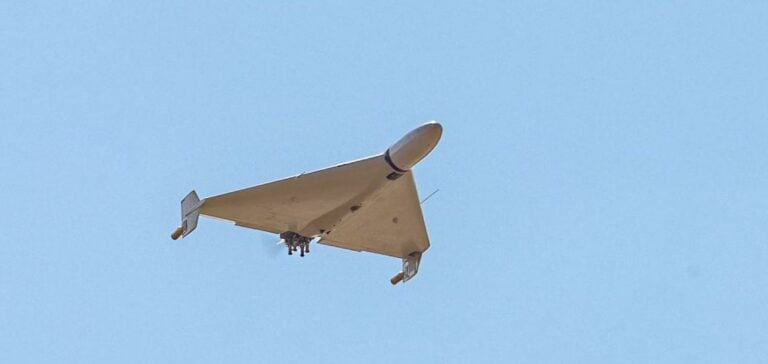Ukrainian drones struck multiple industrial and energy sites in Russia on Tuesday morning, sparking fires in Tatarstan and the Saratov region. These strikes are part of Kyiv’s ongoing efforts to weaken Moscow’s logistical and industrial capabilities.
In the outskirts of Kazan, the capital of Tatarstan, a gas tank caught fire following a drone attack, according to local government reports. While the incident caused a thick plume of black smoke visible for miles, no casualties were reported. Regional leader Rustam Minnikhanov visited the site to assess the damage. Local sources stated that the attack targeted a liquefied gas depot near a chemical plant.
Impact in the Saratov Region
The Saratov region, located 700 kilometers southeast of Moscow, was also hit. Two industrial enterprises sustained damage from what officials described as a “massive drone attack.” A fire was reported at a facility in Engels, while another site in the city of Saratov was also affected. For safety reasons, schools in the region temporarily shifted to remote learning.
Criticism of Russian Air Defense Systems
Andrii Kovalenko, a Ukrainian official in charge of disinformation countermeasures, mocked the effectiveness of Russia’s air defense systems. He claimed the targeted facilities, including refineries, oil depots, and factories producing military components, are critical to Russia’s war effort.
Kazan was specifically noted for the damage caused to the Orgsintez plant, a key chemical company that produces components used in armored vehicles and weapons.
Escalation of Tensions and Repercussions
These recent attacks highlight an escalation in the conflict between Kyiv and Moscow, as both sides seek to strengthen their positions. The Ukrainian Air Force reported neutralizing 58 Russian drones in the last 24 hours, with others intercepted or crashing due to jamming.
The incidents come amid Russian advances in eastern Ukraine, where forces have consolidated their hold on strategic areas, including the city of Kurakhove.
Meanwhile, German Defense Minister Boris Pistorius arrived in Kyiv to discuss continued military support. Germany, the second-largest military aid provider to Ukraine after the United States, faces internal debates over the scale of its support, especially ahead of the legislative elections scheduled for February.





















